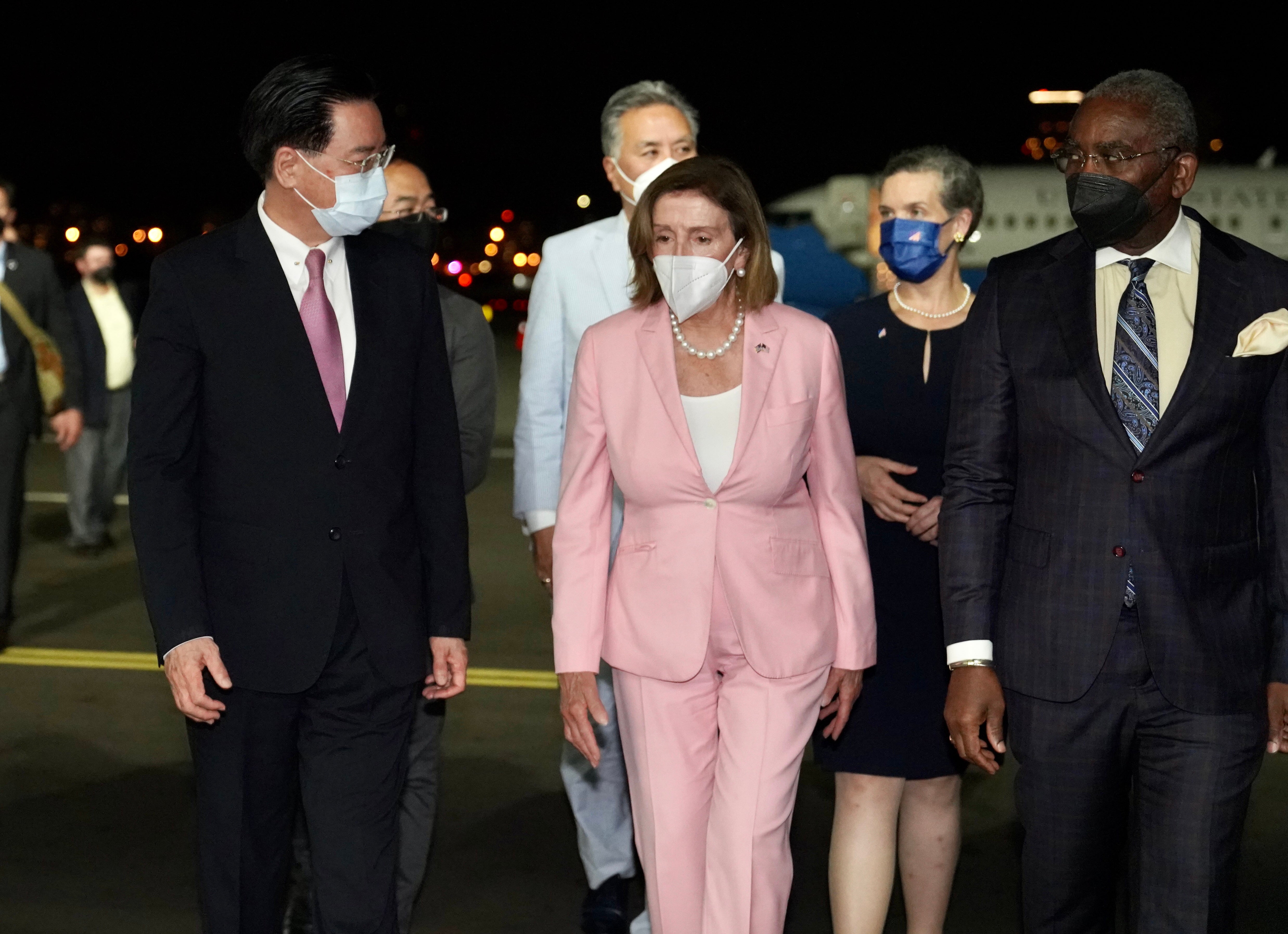Why is Nancy Pelosi’s trip to Taiwan so contentious?
Taiwan is at the centre of a geopolitical struggle between Beijing and Washington
House Speaker Nancy Pelosi’s visit to Taiwan, the highest-level trip by a US official in 25 years, has sparked a diplomatic crisis between the US and China.
Beijing warned the United States that it was “playing with fire” if it allowed the speaker’s visit to take place, and even Joe Biden had cautioned against it.
So why is Ms Pelosi’s trip so controversial?
Taiwan, a self-governing democracy of approximately 23 million off the coast of China, has become a flashpoint in the growing geopolitical struggle between Washington and Beijing.
Taiwan has its own democratic political system, constitution, and military, and many Taiwanese consider the island to be a separate nation to China. But Beijing considers Taiwan a breakaway province that will eventually come under its control — by force if necessary.
The US, meanwhile, is an ally of Taiwan, and has been ambiguous about how it would respond to a military attack by China to capture the island.
China’s rapid economic and military growth over the past few decades has ensured its position as Washington’s top geopolitical rival. US foreign policy has shifted in recent years to a focus on how to counter Beijing’s rise. Taiwan is at the centre of this competition.
The dispute over Taiwan’s status dates back centuries. China stakes a territorial claim to the island as far back as 229AD. The island was ruled by the Qing dynasty from 1683 to 1895, at which point it was briefly ruled by Japan following the First Sino-Japanese war.

Following the Second World War, China took control of the island again. When civil war broke out in China and Mao Zedong’s Communist army took control. The remnants of the former Chinese government and their supporters fled to Taiwan in 1949.
That government-in-exile, outside of the control of Beijing, would eventually develop into a democratic political system with economic ties to China. It has all the characteristics of an independent state, but its status today is a matter of fierce controversy.
Officially, the US adheres to a “One China” policy, which recognises the government in Beijing as “the sole legal Government of China”. But successive US leaders have maintained unofficial ties with Taiwan over the decades, and the 1979 Taiwan Relations Act obligates the US government to provide defensive weapons to Taiwan.
The US has maintained a policy of “strategic ambiguity” about whether it would respond militarily to a Chinese attack on the island. But Mr Biden muddied the waters when he said the US would defend Taiwan if it was attacked.
China’s leader, Xi Jinping, has been more adamant than his predecessors in declaring his intention to unify Taiwan with the mainland. Beijing views Ms Pelosi’s trip as a provocation and has stepped up military activity around the island in response.
For both leaders, Taiwan represents a key part of their own philosophy and how they see the world.
Mr Xi views bringing Taiwan under China’s control as central to his efforts to restore his country’s place in the world as a global power. Mr Biden, meanwhile, sees the defence of a democratic system against China as part of a greater global battle between autocracy and democracy, a viewpoint that defines his foreign policy.
Join our commenting forum
Join thought-provoking conversations, follow other Independent readers and see their replies
Comments


Bookmark popover
Removed from bookmarks